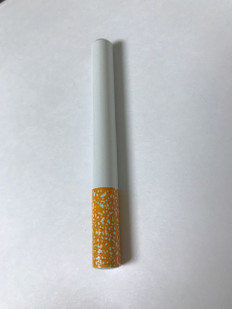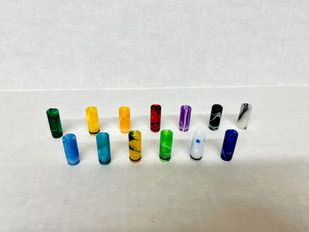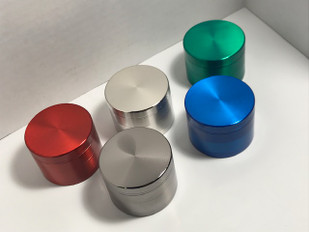- Home
- The Vape Mall Blog
- Fact or Fiction: Can You Get Addicted to Delta 8 THC?
Fact or Fiction: Can You Get Addicted to Delta 8 THC?
Posted by on
 Delta 8 THC
has taken over the hemp industry by offering a unique type of high that offers
feelings of intense ease and tranquility, while being relatively mild compared
to delta 9 THC. Available in all
kinds of product types, delta 8 has become a daily staple for hemp enthusiasts
around the world. But, are those who are
taking delta 8 regularly putting themselves at risk of becoming dependent on
the cannabinoid? Let’s find out.
Delta 8 THC
has taken over the hemp industry by offering a unique type of high that offers
feelings of intense ease and tranquility, while being relatively mild compared
to delta 9 THC. Available in all
kinds of product types, delta 8 has become a daily staple for hemp enthusiasts
around the world. But, are those who are
taking delta 8 regularly putting themselves at risk of becoming dependent on
the cannabinoid? Let’s find out.
What We’re Still Learning About Delta 8 THC
Delta 8 is about 70% as intoxicating as delta 9 THC, which is why so many people notice that the high is milder. The high is usually described as soothing, and it can help ease stress as well as physical discomfort. Given that, it’s not surprising that a lot of people use it as a bedtime aid. The cannabinoid works strongly on CB1 receptors in the nervous system, which is why it seems to have such a strong effect on mood as well as potentially sleep, pain receptors, neurological balance, appetite, and more.
While delta 8 has been around for a long time, no studies have been done to determine whether or not it has addictive qualities – in other words, whether or not a person can become dependent on it.
Can You Get Addicted to Delta 8 THC?
The answer to this question is more complicated than one might think. That’s because there are two types of addictions: physical and mental. A physical addiction means that the body comes to depend on the substance, and so ceasing use of the substance causes physical symptoms. A mental addiction means that a person becomes dependent on the substance emotionally/mentally, and experiences psychological withdrawal symptoms without it.
So, is delta 8 addictive? While there’s no evidence suggesting it is physically addictive, a person can become mentally dependent on it, but that depends on a few factors since not everyone does. Let’s explain why.
#1: Everyone’s Brain is Unique
The key to mental dependency is a person’s brain chemistry. Some people become addicted to substances easily, and really struggle to stop taking them due to how mentally dependent they are. As we’re starting to discover, some people seem to be genetically prone to developing dependencies on certain substances due to psychological traits that they may have inherited, mostly dealing with the balance of their neurotransmitters. Those who seem to get more of a dopamine release after taking a substance may become more mentally addicted to it, since dopamine acts as the “reward” neurotransmitter makes a person feel good after completing a certain action – in this case, taking delta 8.
Delta 8 THC generally has a soothing effect on the mind, meaning it can help a person feel less stressed out and more at peace. This can become addictive, if a person is unable to regulate their stress levels without it. If we develop a routine of treating our stress by taking delta 8, then our brain doesn’t strengthen the skill of minimizing stress on its own. So, the result is needing to constantly take delta 8 in order to keep getting that potential feeling of calm, which is where mental dependency develops.
#2: How Much You Take Matters
As is always the case, how much and how frequently you use a substance can also determine how dependent you become. Take alcohol. A person who is able to maintain a routine of having one drink a week is less likely to develop an addiction than someone who binge-drinks nightly. That’s because the more we take a substance, the more our brains get used to the effects that we get from it, and so the harder it is to remove that substance out of the system. Now, at the same time, there are people out there who can take delta 8 THC each day and never feel any sort of dependency on it, again because everyone’s brain chemistry is unique.
Can You Get Withdrawal Symptoms by Stopping Delta 8 THC?
The good news is that there is no indication that stopping delta 8 THC usage causes dangerous withdrawal symptoms, such as the symptoms that those addicted to alcohol experience when they stop drinking suddenly. But, if you have developed a dependency on delta 8 THC due to how your brain is wired or how much of it you were using, you may get certain symptoms for a short period of time after cessation.
So, what are those potential symptoms? Mainly irritability and anxiety as a rebound effect, as your brain is now left to its own devices to regulate its emotional state. If you were using delta 8 specifically for sleep, you may also notice that there’s a period of readjustment when your body learns how to fall asleep without delta 8 in the system. The good news is that these symptoms are unlikely to become severe, and they’re quite short-term.
Final Thoughts
It’s important to remember that a person can become emotionally/mentally addicted to anything, especially when it’s something that brings them a sense of relief, which is what delta 8 can do in all kinds of ways. But, ultimately, delta 8 has not been found to cause physical dependency thus far, at least in the sense that it could lead to dangerous withdrawal symptoms. So, if your fear of being a delta 8 user is that stopping your routine could cause harm, you very likely have nothing to fear.
 Loading... Please wait...
Loading... Please wait...



